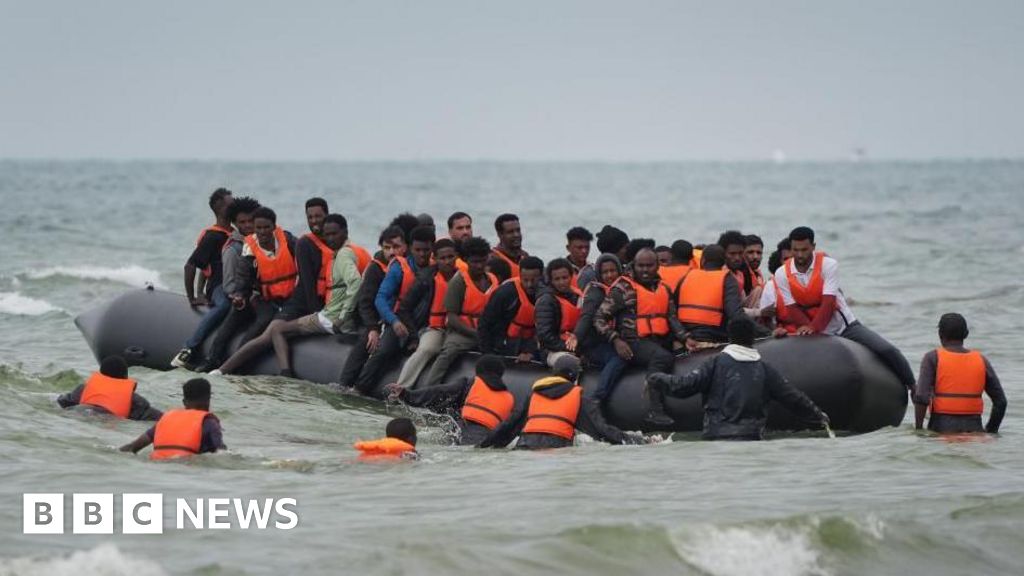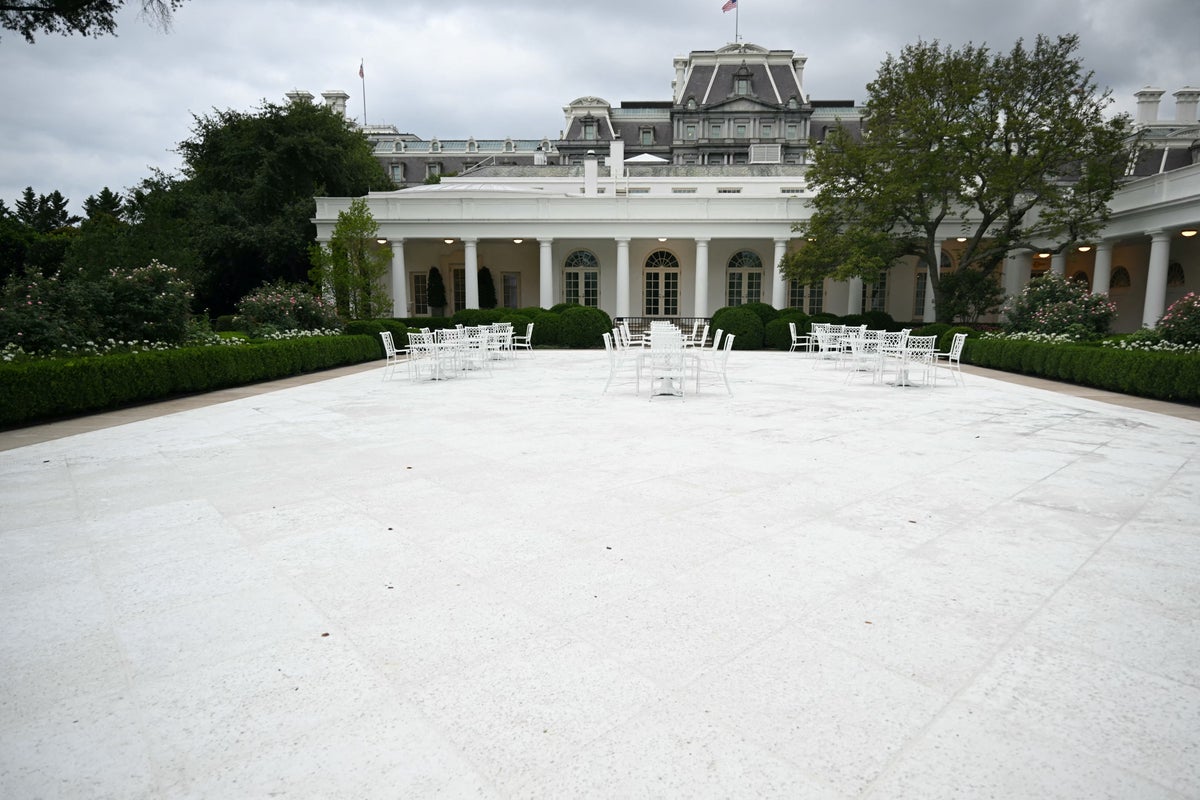Something changed in Brussels over the last few days: After more than a year and a half of urging Israel to end bombardments and blockades of Gaza, the EU took a step toward backing its words with action.
"The mood has hardened significantly," one EU diplomat who asked not to be named told DW.
With the United Nations warning of a "grave risk of famine" in Gaza, the EU's executive — for the first time — has proposed penalizing Israel by barring Israeli startups from accessing some EU research funds.
"With its intervention in the Gaza Strip and the ensuing humanitarian catastrophe, including thousands of civilian deaths and rapidly rising numbers of spreading extreme malnutrition specifically of children, Israel is violating human rights and humanitarian law and thus is in breach of an essential principle of ... EU-Israel cooperation," the European Commission wrote in its proposal on Monday.
But the plan isn't over the line yet.
Israel allows some aid into hunger-stricken Gaza
First step proves problematic
The new proposal hit a hurdle immediately after reached the EU's 27 capitals. Some states, including Germany, were asking for more time to asses the plan, EU diplomats told DW. And without Berlin's backing, the plan is unlikely to advance.
On Monday, Israel's Foreign Ministry called Brussels' proposal "unjustified" and claimed any such punitive measures would only serve to "strengthen Hamas."
Oxfam's Bushra Khalidi told DW there is now "clearly growing pressure within some pockets of the [EU] Commission, backed by some EU countries, to shift course" toward taking action on Israel.
"But let's be clear," she added. "The fact that the EU cannot even agree on the smallest step is a disgrace. The bar is on the floor, and yet the EU and some EU countries are still managing to trip over it."
The split
Ever since the militant group's attacks on October 7, 2023, the EU has been united in its condemnation of Hamas — classed as a terrorist organization by the bloc — and in its call for the release of Israeli hostages.
Beyond that, however, every statement on the EU's ties with Israel has been fiercely debated across a deeply divided bloc.
On one end of the spectrum, there are countries like Spain and Ireland. Since February 2024, Madrid and Dublin have been calling for an "urgent review" into Israeli compliance with the agreement that governs its trade and relations with the EU.
On the other end, Hungary is seen as Israel's staunchest EU ally, and has been blocking any measures requiring bloc-wide backing. This includes sanctions on a handful of violent Israeli settlers — in contrast to the UK, an ex-EU member, which approved a similar measure months ago.
Berlin has also been seen as a strong Israeli ally. Germany views itself as having a historic responsibility toward Israeli security, due to its Nazi past and its systemic murder of six million Jews during the Holocaust.
 The EU says Israel's war conduct in Gaza breaches the terms of the deal that governs its ties with the blocImage: Jehad Alshrafi/AP Photo/dpa/picture alliance
The EU says Israel's war conduct in Gaza breaches the terms of the deal that governs its ties with the blocImage: Jehad Alshrafi/AP Photo/dpa/picture allianceMay: Tipping point reached in EU-Israel ties?
While the EU remains divided on Israel, first signs of a diplomatic shift came in May of this year, when most of the bloc's 27 members backed Spain and Ireland's year-and-a-half old call to review Israel's compliance with the EU association agreement. The Netherlands was among countries which switched camps and prompted the turning point.
Germany stuck to its position and warned against the review, urging dialogue instead. However, Berlin was overruled and the investigation went ahead. The review pointed to a series of suspected Israeli breaches, from blocking aid entry to Gaza and attacking hospitals and journalists, to expanding illegal settlements.
In a letter seen by DW, Israel blasted the review as a "moral and methodological failure," claiming the UN reports the review was based on were "anything but impartial."
But the EU executive stood by its findings and in June, most EU states asked the bloc's officials to draw up a list of possible punitive measures.
 EU states reviewed a list of 10 possible punitive measures to apply pressure on IsraelImage: John Thys/AFP/Getty Images
EU states reviewed a list of 10 possible punitive measures to apply pressure on IsraelImage: John Thys/AFP/Getty ImagesJune: Options for action
According to a leaked internal document seen by DW, that list includes halting visa-free travel for Israeli citizens, restricting student exchanges, banning imports from illegal settlements, and sanctioning some Israeli ministers.
Some of the measures — such as sanctions — would require unanimous EU support. Others — such as trade restrictions — only require a rubber-stamp from a weighted majority of EU governments.
However, even those measures would need to be endorsed from at least a few of the EU's most populous states — Germany, France, Italy, Spain and Poland.
 EU High Representative Kaja Kallas held talks with her Israeli counterpart and announced an aid deal on July 10Image: Geert Vanden Wijngaert/AP/picture alliance
EU High Representative Kaja Kallas held talks with her Israeli counterpart and announced an aid deal on July 10Image: Geert Vanden Wijngaert/AP/picture allianceJuly: Ill-fated aid deal?
Armed with these potential options, the EU's top diplomat Kaja Kallas held talks with her Israeli counterpart — and announced what seemed like a breakthrough just days before EU ministers were due to discuss punitive measures.
"Significant steps have been agreed by Israel to improve the humanitarian situation in the Gaza Strip," Kallas said in a statement on July 10. Germany also helped broker the so-called "common understanding."
EU officials said Israel's commitments included facilitating a "substantial increase" in trucks entering Gaza and reopening some aid routes. When EU ministers met on July 15, they decided not to advance any steps against Israel, instead asking for regular reports on its compliance with the new deal.
Israel's foreign minister called that outcome "an important diplomatic success."
"We managed to fend off all types of obsessive attempts by several countries to impose sanctions on Israel in the EU," Gideon Sa'ar wrote on X later that day.
 The EU is Israel's biggest trade partnerImage: PantherMedia/Rui Vale de Sousa/IMAGO
The EU is Israel's biggest trade partnerImage: PantherMedia/Rui Vale de Sousa/IMAGOMoving forward: Spain, Sweden seek trade deal freeze
But as the month of July went on and warnings of starvation mounted, Brussels' diplomacy option looked less and less effective.
"There has been some progress," the EU’s humanitarian aid chief Hadja Lahbib said on Friday in a post on X. "But let’s be honest: it’s still a drop in the ocean. Without access, we cannot properly assess needs or deliver aid."
The Israeli government told DW it has "begun implementing significant measures to facilitate humanitarian aid," including "humanitarian pauses," and designating "secure routes" for food delivery. The statement blames the UN and Hamas for the crisis and claims there is "no starvation" in Gaza — despite aid groups' evidence to the contrary.
But most European governments say Israeli measures fall far short.
Some states including Sweden, the Netherlands and Spain are now openly calling for the EU to go much further and freeze its trade deal with Israel. That would make it more expensive and difficult for Israeli firms to export goods to the EU — Israel's biggest trading partner.
"The situation in Gaza is utterly deplorable, and Israel is not fulfilling its most basic obligations and agreed-upon commitments regarding humanitarian aid," Swedish Prime Minister Ulf Kristersson wrote on X on Thursday.
"Economic pressure on Israel must increase," he added.
German FM Wadephul demands reassurances from Israel
Export restrictions to travel bans: EU states' unilateral moves
Restricting trade is a power that lies with the EU's executive in Brussels, meaning national governments can't take matters into their own hands.
But individual EU states have taken other decisions to pile pressure on Benjamin Netanyahu's government. Several countries including Spain and Belgium have restricted arms exports to Israel. And with EU-level sanctions looking unlikely, Slovenia and the Netherlands have also banned two far-right Israeli ministers from entering their territory earlier this month, accusing them of promoting "ethnic cleansing."
In a visit to Israel on Thursday, Germany's foreign minister warned his Israeli counterpart that he risked isolation.
Capitals across Europe watched the visit carefully — because any shift in Germany's approach could determine whether planned EU penalties will kick in, or remain an empty threat.

 9 hours ago
3
9 hours ago
3









